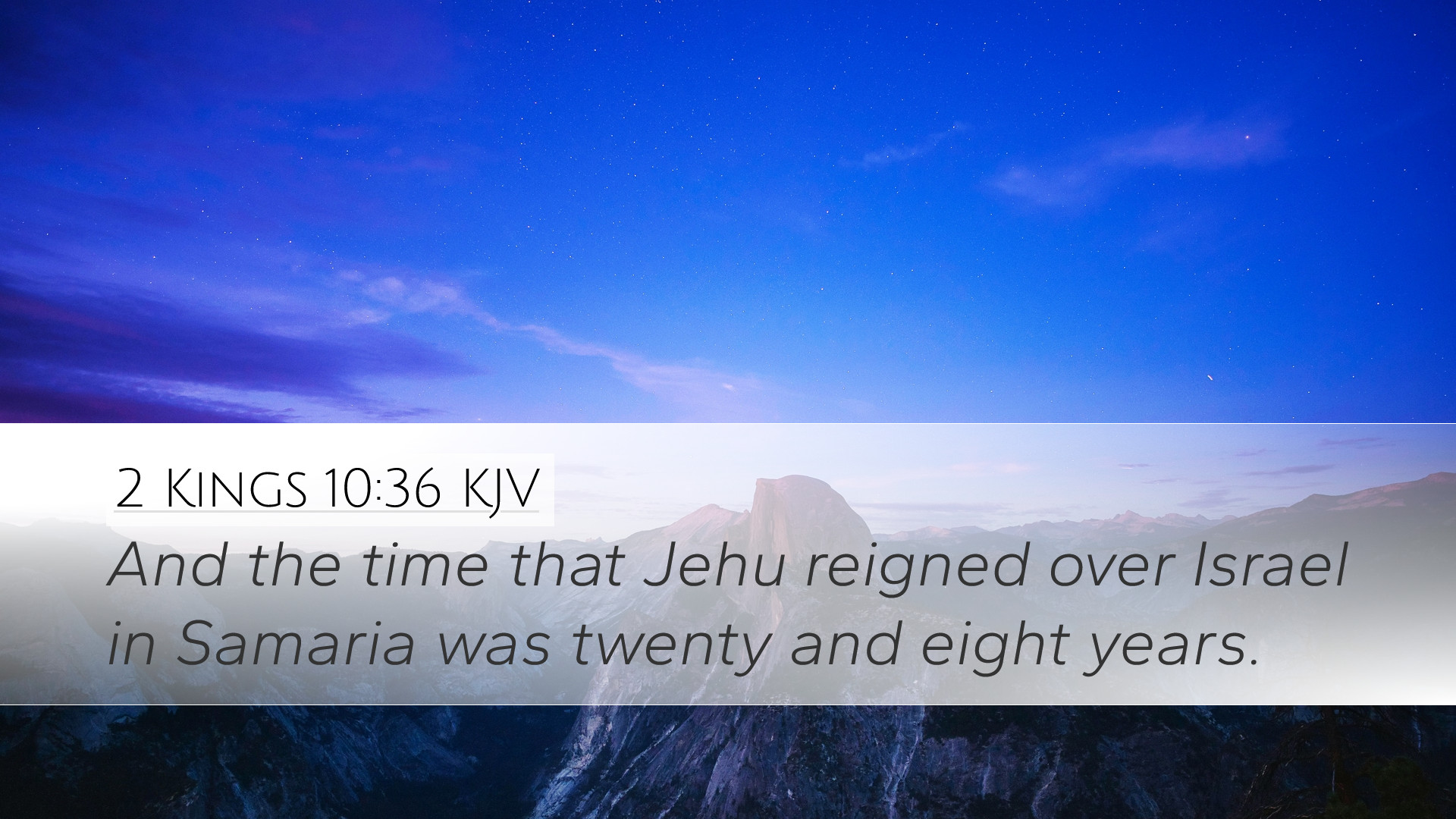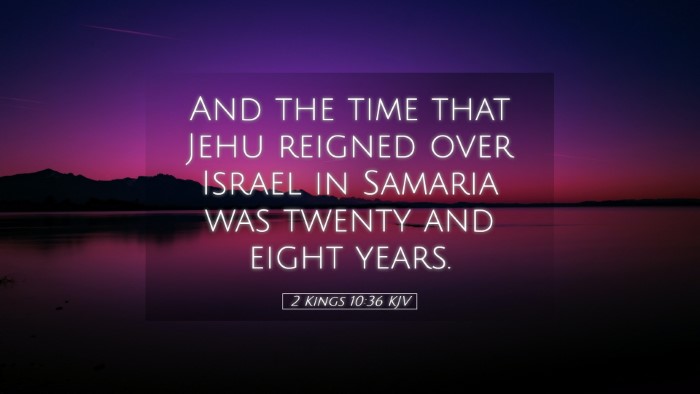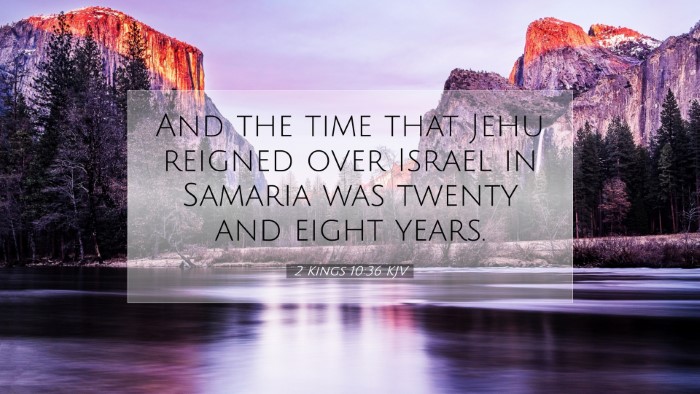Commentary on 2 Kings 10:36
2 Kings 10:36 states: "And the time that Jehu reigned over Israel in Samaria was twenty and eight years." This verse underscores a pivotal moment in the history of Israel under Jehu’s rule. In this commentary, we explore insights from renowned public domain commentaries, notably those by Matthew Henry, Albert Barnes, and Adam Clarke, to illuminate the significance of this passage in the broader narrative of the Hebrew Scriptures.
Historical Context
Jehu was anointed king over Israel as a divine instrument of judgment against the house of Ahab, a dynasty that had led the nation into idolatry and immorality. The prophetic anointing is central to understanding Jehu’s reign as it marked a time of divine intervention in Israel's political landscape.
Matthew Henry's Insights
According to Matthew Henry, Jehu’s reign is a testament to God’s sovereignty over the affairs of nations. Henry emphasizes that Jehu was chosen to execute God’s judgment, illustrating God’s use of imperfect vessels to achieve His purposes. This passage serves to remind readers that even amidst chaos, God's plan for justice prevails.
Albert Barnes’ Perspective
Albert Barnes provides a detailed examination of the duration of Jehu's reign, noting that 28 years represents both stability and divine purpose. Barnes highlights that the length of Jehu’s reign allowed time for significant changes in Israel’s spiritual direction. He notes that during his rule, Jehu eradicated Baal worship, thereby fulfilling the prophetic word given to Elisha and restoring some degree of purity to the northern kingdom.
Adam Clarke's Analysis
Adam Clarke delves into the socio-political implications of Jehu’s reign. He argues that while Jehu successfully eliminated many of the influences of Ahab’s lineage and the Baal worshippers, the sustainability of reforms was a critical consideration. Clarke warns that without a heart transformation among the people, any structural changes might prove fleeting. He raises the question of whether Jehu's zeal for God was matched by the nation’s spiritual revival, which offers a profound insight regarding the relationship between leadership and communal faith.
Theological Reflections
2 Kings 10:36 encapsulates critical themes for theological reflection, particularly the intersection of divine sovereignty and human agency in governance.
The Sovereignty of God
The theme of God's sovereignty is evident in Jehu's ascension. He was chosen not for his representations of godliness but as an instrument of divine justice. This invites readers to reflect on how God’s will is executed through various channels, even those that may not embody holiness in their personal lives.
The Nature of Leadership
Jehu's example prompts a discussion about the nature of effective leadership in a spiritual context. Is adherence to God’s commands enough for leadership, or must there also be personal piety and community involvement? Jehu's political maneuvers built on the premise of zeal for God’s commands serve as an exemplar of a leader's role in spiritual and moral direction—yet the ultimate success of such leadership can only be evaluated over time.
Importance of Duration in Leadership
The significance of Jehu's 28 years of reign invites further reflection on the importance of duration in leadership roles. True leadership manifests not only in initiative but in the steadfastness that allows for sustainable transformation within communities. A prolonged leadership can either solidify positive reforms or contribute to the decline of faith, depending on the leader’s fidelity to spiritual principles.
Conclusion
In summary, 2 Kings 10:36 serves as a multifaceted insight into the complexities of leadership, the challenges of maintaining spiritual integrity, and the overarching sovereignty of God within the narrative of Israel’s history. Through the lens of public domain commentaries by Matthew Henry, Albert Barnes, and Adam Clarke, this verse encourages pastors, theologians, and students of Scripture to reflect on their own contexts and the nature of divine influence in leadership. The reflections provided pave the way for meaningful dialogues surrounding faith, governance, and the historical trajectory of God’s chosen people.


